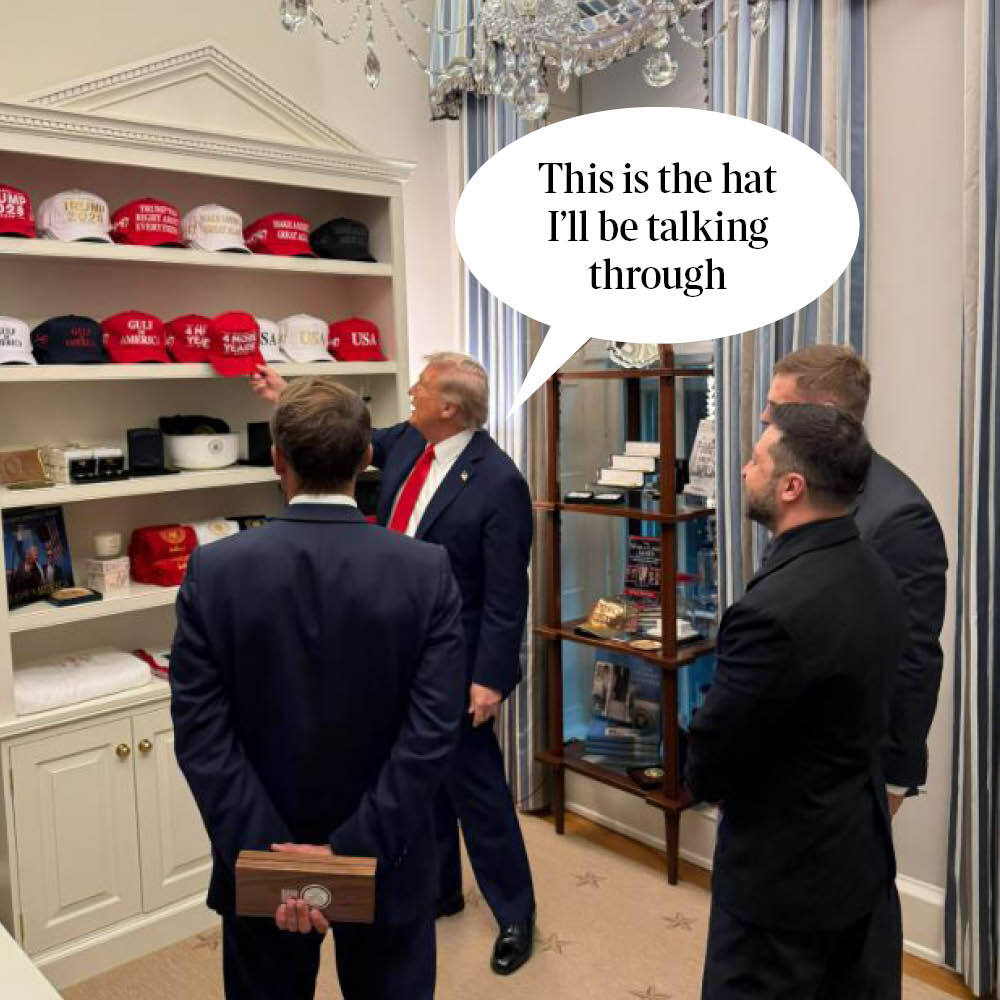Congratulations if you are reading this. And have got this far. You are in possession of a rare and archaic skill: the art of reading. We are now entering the post-literate age. If anybody from the distant future delves back through our remains and finds that most obscure of things, a book, they will be as entranced and mystified as we are when we stumble across the fossilised remains of a brachiosaurus. Reading is dead meat. It is vanishing before our eyes.
I like to call the age we are about to enter the Disenlightenment, in which we de-learn all the stuff that seemed so important to us in the 18th century — knowledge, scientific truths, democratic debate and, most of all, literacy. The Disenlightenment will shun the acquisition of knowledge, arguing that it is more important to tell us how you feel about stuff, rather than know about stuff. Scientific truths will be overturned if they offend idiots, entire disciplines dismembered for their entrenching of supremacy among a certain clique. Democratic debate will not exist; just absolutist positions, and either side will shout fatuous shibboleths at the other, with no room for doubt, but only the recital of certainties. And nobody will read and nobody will know anything.
We are almost there, even now. A recent survey showed that 47 per cent of adults do not read books by choice — that’s about 27 million folk. Still more depressingly, 61 per cent of our 16 to 24-year-olds describe themselves as either “non-readers” or “lapsed readers”. Fewer children than ever are reading, and the proportion of those who bother to do so in the eight to 18 age group has halved in the past 20 years.
When I say reading, by the way, I mean reading books. I do not mean conversing for eight seconds in the gibberish of social media, in which language has been truncated into a kind of bestial grunting, illuminated by little pictures to convey emotions because the individuals are unable to find the right words and, in any case, it’s quicker.
The tricky thing is that once we have stopped reading, we will not start again. One is not born able to read: it is a skill which takes time and patience to acquire. We have no time and even less patience — and anyway, hey, who needs it? All the information we require is spat out in convenient gobbets via the click of a button on our phones or tablets.
Actually understanding things is no longer necessary. Still less reading for the sake of reading, because it is pleasurable and you learn from it. Reading, pleasurable? Really? It ceases to be so if you no longer do it, and it becomes harder and harder to pick up the habit again. Reading has become one of life’s little difficulties that we can do without.
Why has this happened? There are plenty of reasons, most obviously the advent of technology that does our thinking for us and the growth of social media. As I have mentioned before, attention spans have shrunk rapidly in the past 20 years (some dispute this but the weight of evidence is heavily against them); people communicate in brief spurts of words used primarily for instrumental reasons. It is no surprise that the discipline needed to finish a book — or even start a book — is beyond them. Or too much hassle.
But the way we teach children, in our schools, has also contributed to our disaffection with reading. The main aim now is to ensure the kids aren’t bored. Difficult things are boring: they require discipline and commitment, and so are too often skipped. Reading is difficult. Especially reading long things with lots of words. Learning by rote is also boring and difficult, so that has long since been expunged from the curriculum.
Further, the notion that the acquisition of knowledge is, in itself, necessary is no longer promulgated, even if some teachers believe it may still be desirable. But if you skip the background, the knowledge, and simply ask for a response from the pupil, you will get one devoid of context and fact. A response that is essentially meaningless, then, except that it will become the pupil’s “lived experience”, to use the fashionable tautologous expression. Whatever, we are already seeing the consequences of the retreat of reading, with pass marks for GCSE English plummeting and resits possibly to be scrapped.
I am not sure that we have taken any of this seriously enough. Literacy led to the astonishing inventions that heralded the Industrial Revolution and spread a thirst for knowledge across much of the globe (largely the bits we owned, incidentally). Reading books stimulates the imagination and prevents one from descending into that narcissistic state in which your own opinion must never be challenged, because in reading one is open to myriad differing opinions, even really stupid ones from Sally Rooney.
Reading inspires — and the better the book, the greater the inspiration. I have the suspicion that once it has gone from our lives, we will be lesser people. But that’s the Disenlightenment for you, and I don’t suppose anybody will worry about it for long.
Trump shows off impressive collection
Staying alert on holiday
Brits only start to relax on the sixth day of their foreign holiday, according to a new survey by a budget airline. Until then, they are stressed out, fractious and watchful. This, as far as I’m concerned, is the way one should be for the duration of one’s holiday. We must all guard against being lulled into a false sense of security by foreigners: relax on day six and the bastards will have your sunbed, your wallet and your oldest daughter before you’ve finished the quick crossword.
They’re really not raising standards
Given the polarised nature of all political debates these days, I suppose I should be out stringing the Union Jack across every lamppost in the area. It’s certainly preferable to the insipid Pride flag to which we’ve been forced to pay obeisance for too long.
Problem is, I find a surfeit of flags, be they promoting Great Britain or homosexuality, oppressive and likely to lead to trouble further down the line. And while I’m sure those responsible for Operation Raise the Colours are simply patriots, there is something intrinsically fascisty in hoisting a flag and vilifying people if they don’t salute it. I pay obeisance to nobody apart from my wife and my lovely, sadly departed, dog, Jessie.
Groupthink in the literary ghetto
I dare say you are as bitterly disappointed as me to learn that this year’s Polari prize for LGBT literature has been cancelled. The appearance on the longlist of the gay writer John Boyne, who has expressed gender-critical views, provoked the screaming Mimis of the trans lobby into the usual hissy fit. All homosexuals must share the same views, you see.
Anyway, the award was cancelled and my advice for them is to cancel it next year as well, and the year after that. Now that almost all new novels are gay, do we really need a ghetto for gay authors? Or, for that matter, black authors, or women (who now make up most of the shortlists for the big prizes)?
Let’s have special prizes for writers who are under-represented, such as men, dwarfs and fascists.

